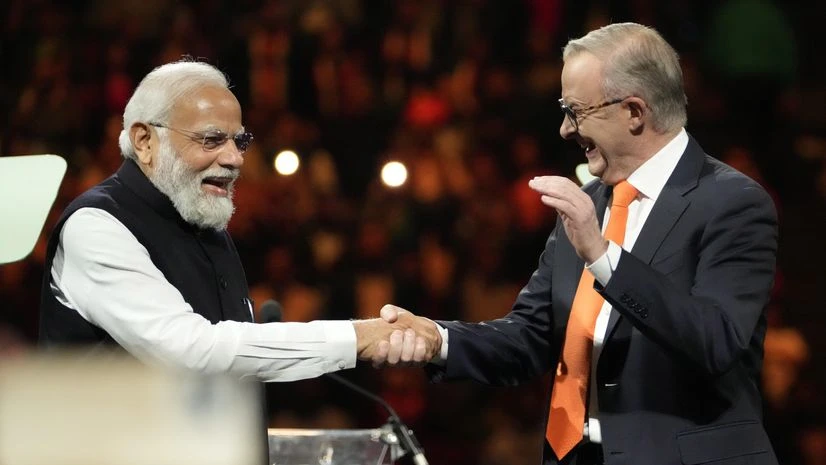Prime Minister Narendra Modi on Wednesday raised with his Australian counterpart Anthony Albanese India's concerns over the recent incidents of attacks on temples in Australia and activities of pro-Khalistani elements in that country.
In their wide-ranging talks here, the two prime ministers also decided to focus on firming up a comprehensive economic cooperation agreement (CECA) that is expected to significantly expand bilateral trade ties.
In his media statement, Modi, highlighting the significance of the India-Australia cooperation, said it is crucial for regional peace, stability and global welfare.
"Prime Minister Albanese and I have in the past discussed the issue of attacks on temples in Australia and activities of separatist elements. We discussed the matter today as well," Modi said.
"It is not acceptable to us that anyone hurt the friendly and cordial ties between India and Australia by their actions or ideology," he said.
Modi thanked Albanese for taking action against those involved in such incidents.
More From This Section
"Prime Minister Albanese assured me once again today that he will take strict actions against such elements in the future also," Modi said.
Referring to the frequency of his meetings with the Australian counterpart, Modi said it reflected the depth of the India-Australia relationship.
"This is our sixth meeting in the past one year. This reflects the depth of our comprehensive relations and the maturity of our ties. In the language of cricket, our ties have entered the T20 mode," Modi said.
Modi said the two sides also held constructive discussions on strategic cooperation in areas of mining and critical minerals.
In the talks, the two sides also decided to focus on cooperation in areas of green hydrogen.
In his statement, Albanese announced that Australia will establish a new Consulate General in Bengaluru.
Ahead of the talks, Modi was accorded a ceremonial guard of honour at the Admiralty House in Sydney.
(Only the headline and picture of this report may have been reworked by the Business Standard staff; the rest of the content is auto-generated from a syndicated feed.)

)
